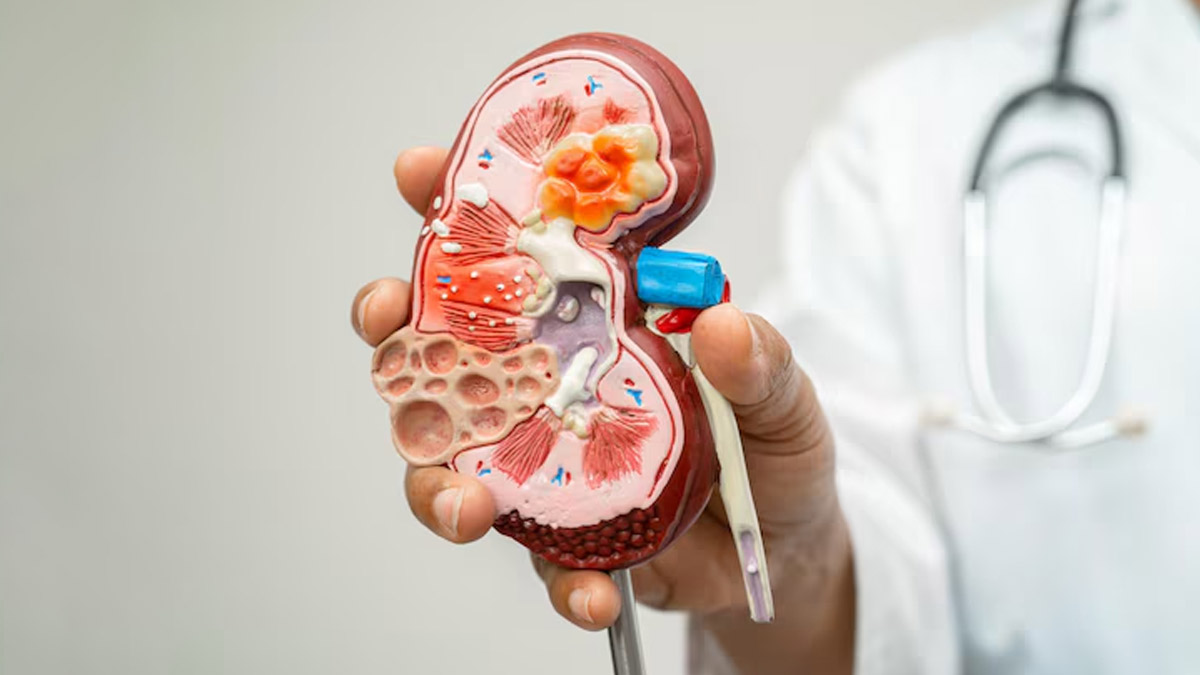While we anticipate our bodies to unwind and recuperate during the night, sometimes they are actively attempting to communicate distress. Your kidneys, vital organs responsible for filtration and waste removal, can subtly signal trouble after dusk.
These nocturnal indicators are frequently overlooked or mistakenly attributed to less serious conditions. Recognizing these quiet alerts from your body can be paramount for your long-term health.
The Silent Threat of Kidney Disease
Kidney disease is often referred to as a “silent killer” because it typically progresses without overt symptoms in its early stages. “As a nephrologist, I encounter numerous patients who unfortunately arrive too late, their kidneys having already sustained considerable damage,” shares Dr. Ratan Jha, Clinical Director and Senior Consultant, Nephrologist and Transplant Physician at CARE Hospitals, Banjara Hills, Hyderabad.
He emphasizes that while the disease often remains undetected, specific early warning signs, particularly those that emerge during the night, might be your body’s critical “red flag.” Ignoring these signals can lead to missed opportunities for timely medical intervention.
Why Nighttime Reveals Kidney Distress
The nocturnal period offers a unique window into kidney health. During daylight hours, factors like gravity assist in fluid circulation, often masking the kidneys’ reduced ability to process excess fluid and waste. However, as the body lies horizontally at night, these dynamics shift. The kidneys’ inefficiency in filtering and concentrating urine, or balancing minerals, becomes more pronounced, causing symptoms to surface or intensify, making nighttime observations particularly valuable.
Five Key Nocturnal Symptoms of Kidney Issues
Dr. Jha highlights several common nocturnal symptoms that could indicate underlying kidney problems:
1. Frequent Urination After Dark (Nocturia)
Waking up multiple times during the night to urinate (known as nocturia) is a signal that should not be dismissed lightly. Healthy kidneys efficiently concentrate urine throughout the day, allowing for restful, uninterrupted sleep.
When kidney function declines, they lose this crucial ability to retain fluids properly, leading to an increased and often urgent need to urinate frequently during the night. While this symptom can sometimes be misattributed to an overactive bladder or diabetes, persistent nocturia, especially if it’s a new pattern, warrants investigating for chronic kidney failure.
2. Morning Swelling: Puffy Eyelids and Feet
If you frequently wake up with noticeable swelling in your feet or puffiness around your eyes, it might be more than just a reaction to a salty dinner. When kidneys are impaired, they struggle to effectively remove excess fluid and sodium from your system. This fluid tends to accumulate in the lower limbs throughout the day due to gravity.
Overnight, as you lie down, this retained fluid redistributes throughout the body, resulting in characteristic facial puffiness, particularly around the eyelids, and persistent ankle swelling upon waking. This sustained morning puffiness is a significant indicator that your kidneys may be struggling.
3. Unexplained Restlessness or Itchiness in Legs and Skin
A persistent, bothersome itch, especially one that intensifies at night, or a troubling crawling sensation in your legs, can be a subtle but important kidney symptom. Dr. Jha explains that a key function of healthy kidneys is to eliminate waste products from the blood and maintain a proper balance of minerals.
When kidneys fail to perform optimally, toxins can build up in the bloodstream. This accumulation can manifest as dry, intensely itchy skin or an uncomfortable, restless feeling in the legs, symptoms that commonly worsen during the evening hours. Restless leg syndrome, particularly when it emerges or becomes severe unexpectedly, has been linked to advanced kidney disease.
4. Persistent Fatigue and Disrupted Sleep Quality
Despite believing you’re getting sufficient sleep, chronic kidney issues can significantly disrupt your natural sleep patterns, leaving you feeling perpetually exhausted. The body’s vital repair and rejuvenation processes primarily occur at night. If your kidneys are underperforming, toxins remain circulating in your system, interfering with this crucial relaxation and mending process.
This internal interference often leaves individuals feeling sluggish, “fuzzy,” and unrested, even after what appears to be a full night’s sleep. Unexplained nocturnal fatigue can be a sign that your kidneys are working overtime without effectively clearing out the system.
5. Changes in Urine Appearance: Foam or Discoloration
While not everyone inspects their urine every time, a quick glance could provide vital clues. Persistent foamy urine, particularly when it appears consistently, can be a significant sign of protein leakage, which directly indicates kidney damage. While daily urine color can vary based on hydration and diet, any noticeable and enduring changes in its color, clarity, or especially its frothy appearance—whether observed at night or in the early morning—should prompt concern.
According to the National Kidney Foundation, many individuals with chronic kidney disease remain unaware of their condition until advanced stages, when kidney failure is imminent or a substantial amount of protein is present in their urine. Protein loss is often detected before more obvious symptoms like discomfort or swelling appear, highlighting the importance of observing your urine. If your urine appears unusual for more than a few days, it’s crucial to consult your doctor.
The Critical Importance of Early Intervention
It’s vital to remember that kidney failure is not a sudden event; rather, the damage typically accumulates gradually over time until the warning signs become too severe to ignore. Recognizing these early, often nocturnal, symptoms provides a crucial window for intervention. Early detection allows for more effective treatment strategies, the implementation of significant lifestyle modifications, and potentially the prevention of severe, long-term complications, including the need for dialysis or kidney transplant.
Taking Action: When to Consult a Doctor
If any of the aforementioned symptoms resonate with your experiences, it’s important not to panic but to take immediate, decisive action. These signs do not definitively diagnose kidney disease, but they serve as strong indicators that warrant medical attention. At the very least, you should schedule a routine check-up with your primary care physician. This comprehensive assessment will typically include essential diagnostic tools such as a urine test and a kidney function blood test (e.g., a creatinine test or eGFR) to accurately evaluate your kidney health.
Proactive Steps for Kidney Health
Beyond recognizing warning signs, proactive measures can significantly support kidney health. As Dr. Jha advises, the foundational steps involve maintaining adequate hydration (avoiding both dehydration and overhydration), consciously limiting your intake of salt and sugar, and diligently managing conditions like high blood pressure and elevated blood sugar.
Furthermore, avoid the casual or indiscriminate use of over-the-counter painkillers, as some can negatively impact kidney function. Above all, cultivate a heightened awareness of your body’s subtle signals, especially during the quiet hours of the night—they are often the most revealing indicators of your internal well-being.
Listening to Your Body’s Nighttime Signals
Your kidneys work tirelessly, often silently, to maintain your body’s delicate balance. However, when they are in distress, they begin to communicate through subtle, yet important, nocturnal signals.
By paying close attention to these five key symptoms—frequent nighttime urination, morning swelling, restless legs or itchy skin, persistent fatigue, and changes in urine appearance—you empower yourself with the knowledge for early detection. Listening to your body’s nighttime messages is a crucial step towards safeguarding your kidney health and ensuring a healthier future.








